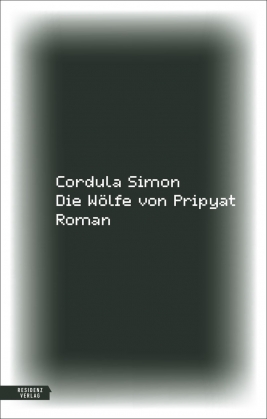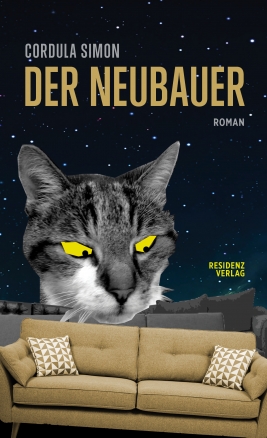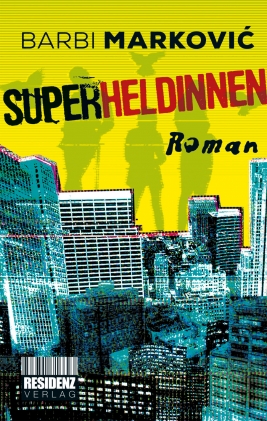So bleibt von dieser unterhaltsamen, spannenden und geistvollen Lektüre an erster Stelle die Frage, was Freiheit in unserer vom Digitalen bestimmten Welt bedeuten kann.
[Quelle: Wolfgang Straub, Ö1 EX LIBRIS]
Enorm geschickt zieht Cordula Simon in ihrem düsteren Prosastück die Strippen der Spannungserzeugung. Clever bindet sie eine vermeintliche Terrorgruppe namens „Die Wölfe von Pripjat“ in das außerordentlich packende Geschehen ein. [...] Cordula Simon entpuppt sich in ihrer pessimistischen Utopie als kühne Erbin von George Orwell, Margaret Atwood und Doris Lessing.
[Quelle: Ulf Heise, MDR KULTUR]
Verpackt in eine rasante Geschichte voll schwarzem Humor und bitterbösen Überspitzungen liefert Simon mit „Die Wölfe von Pripyat“ eine wortgewaltige Abrechnung mit unserer Gegenwart, die ihre Freiheit irgendwo zwischen freiwilliger Überwachung in Sozialen Medien und fehlgeleiteter Identitätspolitik völlig zu verlieren droht.
[Quelle: Christoph Hartner, STEIRERKRONE]
Cordula Simons Vision eines Überwachungsstaats wirkt bedrohlich realistisch und nah.
[Quelle: Sebastian Fasthuber, FALTER]
"Die Wölfe von Pripyat" sind spannend, beklemmend und beunruhigend. Und haben damit derzeit leider nur eine Konkurrenz: die aktuellen Nachrichten.
[Quelle: Wolfgang Huber-Lang, APA]
Simon entwirft eine zynisch humorvolle Version einer bitteren Zukunft.
[Quelle: claud, CITY-FLYER]
Der Zynismus von Cordula Simon nimmt streckenweise den Atem, ebenso die visionäre Fantasie der Autorin, die schon lang vor den aktuellen Ereignissen in der Ukraine an ihrem Roman geschrieben haben muss. (...) Soll man das lesen? Unbedingt.
[Quelle: Karin Waldner-Petutschnig, KLEINE ZEITUNG]
Die Welt, wie Cordula Simon sie sieht, ist nicht lückenlos verständlich und gerade deswegen faszinierend. Wie in allen bisherigen Büchern wird auch hier der Hang zu apokalyptischen Szenarien durch einen befreienden Humor gemildert. (...) Die Fragen, die sie mit "Die Wölfe von Pripyat" aufwirft, regen zum Weiterdenken an.
[Quelle: Kirstin Breitenfellner, LITERATURHAUS.AT]
Ein Roman dessen Schauplatz vor dem Hintergrund des Krieges in der Ukraine besondere Relevanz hat.
[Quelle: ORF ZiB]
Anspielungen Simons auf die Cancel Culture und die Identitätspolitik sind gut gewählt und erden diese dystopische Erzählung in der Gegenwart.
[Quelle: Irina Kilimnik, DIE PRESSE]
…eine bedrückende Dystopie.
[Quelle: Gabriele Fachinger, EKZ]
...gefährliche Abenteuergeschichte...beachtenswert.
[Quelle: LESART]
Restbestände des utopischen Potentials, das in jedem Anfang nistet, bewahrt ... die Sprache, und zwar ... dort, wo sie schweigt. Das heisst nicht, dass sie nichts sagt, sondern dass sie es auf unerhörte Weise tut. ... Diese Sprache will die Realität weder verschleiern noch zugreifen auf sie. Sie wartet, hält inne, bis es scheint, als würden die Dinge von sich aus sprechen. Auch diese Sprache sagt nicht, was ist, doch sie hält gegenwärtig, was sein könnte.
[Quelle: Gerhard Melzer, MANUSKRIPTE]
In Cordula Simons Welt in ‘Die Wölfe von Pripjat‘ sind die Würfel längst gefallen. Detailliert, zynisch humorvoll setzt Cordula Simon die aktuelle Digitalisierung und Vernetzung virtuell fort.
[Quelle: VOICES OF THE STREET]
Bitterböse Satire, in der sich die heutige Welt, auch wenn die Handlung in der Zukunft spielt, deutlich wiederfindet. [...] Ein wenig speziell, doch für alle interessierten LeserInnen empfohlen.
[Quelle: Wilfried Funke, MEDIENPROFILE]
Wo Cordula Simon draufsteht, ist Qualität drin. (...) Es ist anspruchsvolle Literatur, die verstört und viele Fragen offenlässt.
[Quelle: Michael Wildauer, BIBLIOTHEKSNACHRICHTEN]










